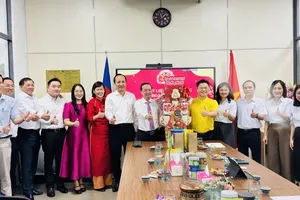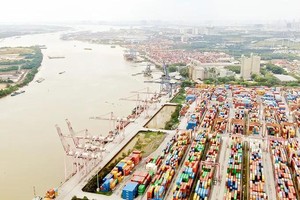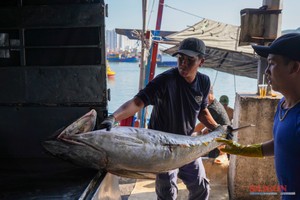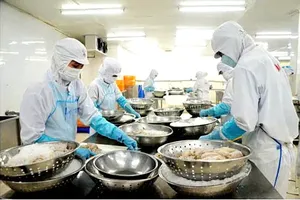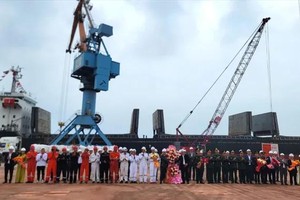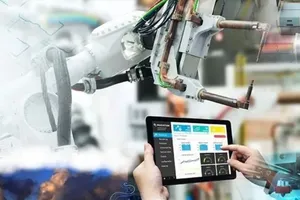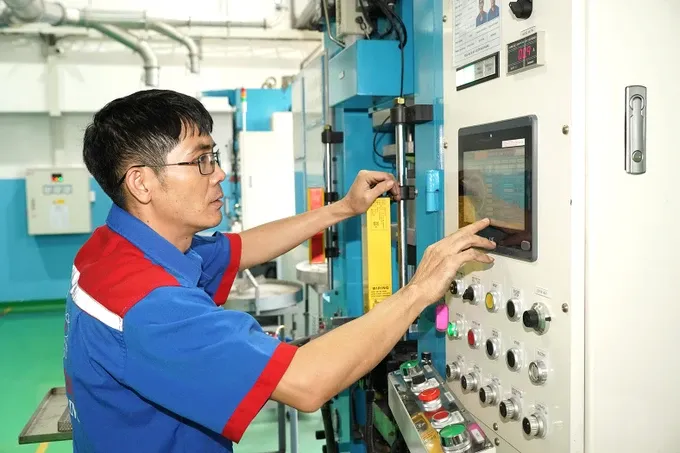
After the Covid-19 pandemic, the money flow from foreign direct investment (FDI) continued to reach Vietnam. At the end of last year, there were more than 38,800 valid FDI projects with the total registered capital of about US$462.4 billion. The accumulated actual capital volume of all FDI projects was calculated to be $294.2 billion, including $20.19 billion of newly registered capital (a rise of 62.2 percent). About 3,200 new projects were registered. More importantly, approximately 61 percent of the total FDI investment is in the manufacturing and processing industry.
Chairman Gabor Fluit of the European Chamber of Commerce in Vietnam shared that the attraction of Vietnam has increased a great deal, being in the list of top-10 investment destinations in the world among 62 percent of the surveyed people. 17 percent of them even marked Vietnam at the leading position.
In the recently held Vietnam – US Trading Forum, the US has promised to allocate $240 million to develop the semiconductor industry ecosystem in Vietnam, with a clear support to US businesses having detailed investment strategies in this field in Vietnam. Intel Products Vietnam Co. Ltd. also commits to expanding its investment in the country after the amount of $1.5 billion in Saigon Hi-tech Park to manufacture 70 percent of its chip supply globally. Other large corporations like Apple, Qualcomm, Nike, Morgan Stanley, GE, ACORN International, and General Dynamics are attracting a large quantity of foreign businesses in the supporting industry into Vietnam as well.
The FDI flow in the country also happens in other provinces, such as Qtech Group having built an electronic options factory worth $430 million in Nghe An Province, Yadea to construct a factory worth $100 million in Bac Giang Province, Haohua Co. having its 500-million-dollar factory approved in Binh Phuoc Province.
Ono Masuo, Consulate General of Japan in HCM, affirmed that his country now has more than 1,600 projects in operation in HCMC with a total investment of over $5.7 billion. The Japanese strategy reveals Vietnam and HCMC in particular as an important destination for Japanese businesses in establishing, expanding, and stabilizing global supply chains.
Positive as it seems, there are still various challenges for domestic enterprises to participate confidently in international supply chains. General Director of CNS Amura Precision Co. Ltd. shared that even with a stable order number from Japan and the Republic of Korea, his company is facing huge pressure from price competition and a constant price reduction by 3 percent per year. This would result in a thinner profit margin, and thus making it more difficult to retain clients in the long term. To amend that, it is critical for domestic businesses in the supporting industry to manufacture products of core technologies.
“FDI companies mostly self-produce items of core technologies or give the job to others in their own country to ensure technological security. This is why 300 Vietnamese businesses taking part in global supply chains are still not able to offer hi-tech, critical products like semiconductor items, IC boards”, said Vice Chairwoman Truong Chi Binh of the Vietnam Association of Supporting Industries worriedly.
In addition, preferential policies, be it local or national, are not sufficient for FDI businesses to transfer their core technologies to Vietnamese supporting companies. “It is better to form research and development centers to help domestic enterprises increase their design ability and create novel hi-tech products of their own, ultimately establishing a ‘Made in Vietnam’ supply chain”, proposed Chairman Do Phuoc Tong of the HCMC Mechanical and Electrical Business Association.
Moreover, the financial aid policy from the state should be consistent and unchanged so that registered enterprises, especially supporting ones, have better chances for development.
At the same time, the investment attraction policy, when introduced, will obviously result in the participation of foreign supporting enterprises, which are usually more experienced and can offer lower prices due to higher depreciation rates. That is not to mention other favorite conditions for foreign companies like tax and land lease fee reduction or machine importing with tax exemptions. Therefore, it is necessary to consider the investment policy carefully before launching to avoid a loss of competitive advantage of domestic companies right in Vietnam.
Deputy Director Pham Trung Kien of the HCMC Department of Planning and Investment stated that Vietnam and HCMC in particular has become a favorable destination of investment because the preferential policies launched here are the same as the wish and strengths of investors.
This is especially true in the 4 key industries of electronics manufacturing, pharmaceutical chemistry, precision mechanics, food and beverage processing; in the 5 new industries of biology, pharmaceuticals, automation, semiconductor industry and supporting industry for high technology; in the 6 highly potential supporting service industries of tourism, insurance – banking – investment, e-commerce, healthcare, logistics and transport, technology and education.
Meanwhile, the carbon market in Vietnam is considered to be rather fragmented and simple, becoming a lucrative area for foreign investors to exploit.

